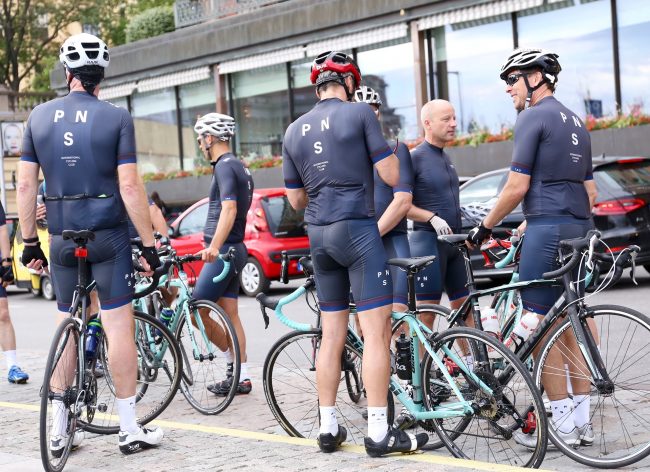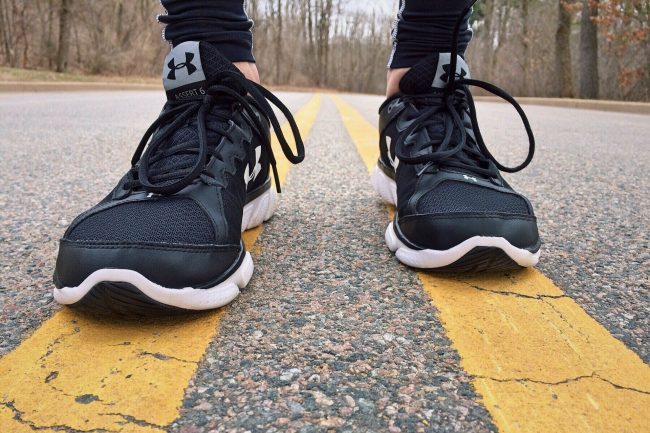“I should exercise more.” How often have you said this to yourself? Despite our best efforts, many of us don’t exercise as much as we think we should. As somebody who does exercise a lot, it used to drive me nuts to hear people say this. If you want to exercise, then do it!
But it isn’t always that simple. Everybody from our doctors to the media tries to encourage us by talking about goals, weight loss, and healthy habits, but when it comes down to it, these aren’t the things that make us stick to our workout routines. For me, the factors that turned fitness into a permanent lifestyle were a little less obvious. Here’s what worked:
Convenience
I got into working out in college. Bicycle racing was big where I lived, and I knew it was great exercise, but it seemed out of reach. I didn’t know where to go, I was nervous about riding in traffic, and I was overwhelmed by all the gear I’d have to buy—first and foremost, a bicycle. There were just so many inconveniences that when I thought about it, I got overwhelmed.
But then a friend who worked for a sportswear company gave me a pair of running shoes. That was the only gear I needed to start running. I went out my front door and ran up the sidewalk. Since I didn’t need any equipment or knowledge, and I didn’t have to go to a particular place, it was super easy, and I started running in my neighborhood three times a week.
The Social Factor
Eventually, I did buy a bike and started cycling too. What made me do it, despite the inconvenience? In a word, friends. All of my coolest friends raced bikes, and I wanted to break into that world. It didn’t hurt that there were a lot of cute guys riding bikes too!
When I decided to start riding seriously, I joined a bike racing team. The team ended up being an amazing group of friends, with whom I remained close even after we stopped riding together. Saturday morning group rides were the highlight of my week—I loved getting to spend time with such fun people. Plus, I learned a lot about how to train and get faster from hanging out with them.
Short-Term Benefits
When you’re working out to lose weight, it can become incredibly frustrating because it often takes a long time to see results, if you see them at all; our bodies tend to want to stay at a constant weight. But focusing instead on the immediate benefits of exercise that are easier to see can remind us that it’s worth the effort. For me, this means mental health benefits. I feel so much calmer and happier even after one workout. Once I noticed this, I stopped making excuses to skip runs or rides. I wanted to keep feeling good.
Joy
Ultimately though, I never got that far with bicycling. Moving at high speeds near unpredictable motorists and pedestrians never stopped making me nervous, and sitting on a little saddle for hours at a time was uncomfortable no matter how many different ones I tried.
But I always came back to running. I loved its simplicity and how I could get a great workout in just half an hour. I noticed that as I got in better shape, it stopped feeling like work. Instead of gritting my teeth through the miles because I knew I’d feel better afterward, I found myself enjoying it from start to finish. This is when I realized that instead of slogging through the bare minimum, I was choosing to run longer routes and seeking out tougher terrain. I didn’t have to motivate myself anymore because I just loved to do it.
At the same time, I’ve noticed that I have to make the intensity something I can keep doing week in and week out. If I drown myself in a pool of sweat every day—even doing something I love, like running—I’ll inevitably burn myself out or get injured.
These days, I try to vary the intensity of my workouts, going at max effort a couple times a week and then varying between moderate and easy days the rest of the time. I look forward to the easy days because they’re a relief, but I look forward to the tough days too, because that’s when I can challenge myself.
Bottom line: if you truly enjoy the exercise you’re doing, you’ll naturally want to stick with it rather than having to force yourself into it. Finding something you love to do, whether it’s running, yoga, or dance walking, is the key to making exercise a lasting habit.
Time
Behavior change doesn’t happen overnight. The widely used transtheoretical model of behavior change breaks it down into several stages, from realizing you want to make a change, to thinking about how you’re going to do it, to beginning to integrate the new behavior into your life. There’s actually a specific stage, Preparation, that’s characterized by talking about your intentions to change but not actually getting around to doing it yet. It helps me to keep this in mind when I hear my friends talk about working out but not make it to the gym. They’re not procrastinating, they’re preparing!
It takes time to go through the stages of behavior change, and we all do it at our own pace. While I was highly motivated and jumped into fitness pretty quickly once I found the right sport, I also fell off the wagon a few times and changed sports before I found the drive to stick with it for good.
If you’ve been waffling about getting active, think about whether any of these factors are holding you back, and what changes you can make. Is there a gym or yoga studio closer to your house or job? Are there people you know who you’d want to play sports with? What kind of activity makes you feel great? And perhaps the most important question: Are you ready to make a change?
Making the prospect of exercise more attractive, and being patient with the process of change, are important pieces in the exercise puzzle. Once you find them, everything clicks into place.
Photo Credits
Running Shoes – Creative Commons from Pixabay
Group Ride – Creative Commons from Pixabay
Guest Author Bio
Shauna Gold
 Shauna Gold is a writer based in Boise, Idaho. Her work has appeared in various venues: photocopied zines in the ‘90s, magazine journalism in the ‘00s, and online in the ‘10s. While avenues for writing change and disappear, the compulsion to do it also changes, but does not disappear. Gold continues to seek out new ways to be a part of the cultural conversation.
Shauna Gold is a writer based in Boise, Idaho. Her work has appeared in various venues: photocopied zines in the ‘90s, magazine journalism in the ‘00s, and online in the ‘10s. While avenues for writing change and disappear, the compulsion to do it also changes, but does not disappear. Gold continues to seek out new ways to be a part of the cultural conversation.
You can read her work on Medium and follow her on Twitter.
Recent Guest Author Articles:
- How to Mix Shaker Cabinets with Open Shelving
- How Strong Business Training Translates Into Everyday Decision-Making
- New Career and Degree Paths for Educators Who Want to Make a Broader Impact
- Finding the Right Plumber in Portland: A Comprehensive Guide for Homeowners
- Why Choose Elara Caring for Jackson, MI Home Health Services?




Please Share Your Thoughts - Leave A Comment!